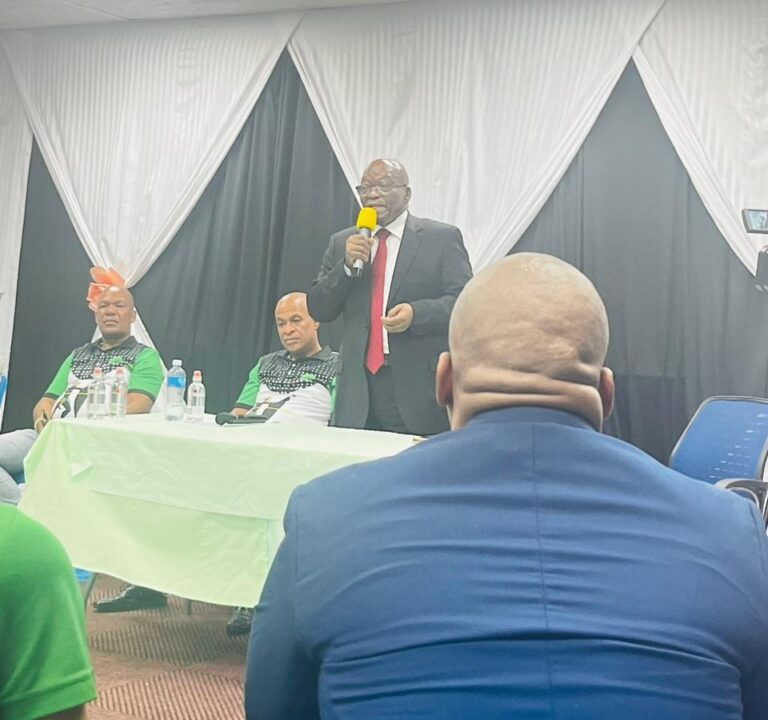
Unemployed graduates with Bachelor of Education (BEd) degrees recently presented a set of demands to the Provincial Department of Education at the Durban old ABSA building.
The group, representing the struggles of unemployed educators, not only prepared a memorandum outlining their concerns but also extended an invitation to Mkhonto Wesizwe and former President Zuma to assist in submitting the document.
Former President Zuma expressed solidarity with the group’s cause and pledged to submit their demands collectively.
He promised that, if elected, his administration would prioritize addressing youth unemployment.
Zuma urged everyone to register to vote and participate in large numbers.
Zuma hinted at a broader political agenda, indicating a desire to secure a two-thirds majority in parliament.
Read | Man Arrested After Missing Durban Teacher Found Murdered in her Home
He explained, would enable the government to pursue constitutional changes in favor of the Black and African communities. The contentious Land Question took center stage as the priority, accompanied by a commitment to Radical Economic Transformation.
Zuma proposed a plan to halt the export of mineral resources with no returns and instead build domestic factories for processing minerals into usable products such as gold and diamonds.
This strategic move, he argued, would contribute to economic self-sufficiency and development.
Calling for organizational discipline, Zuma encouraged the group to coordinate themselves into branches, despite the absence of established structures in branches and regions. He announced plans to collaborate with provincial and national coordinators to facilitate this process. Zuma also mentioned the possibility of providing video support to convey the group’s message and goals further.
As the unemployed graduates rally for political backing, their collaboration with prominent figures and commitment to influencing policy changes seem to mark a significant step in the ongoing dialogue surrounding youth unemployment and broader socio-economic issues.